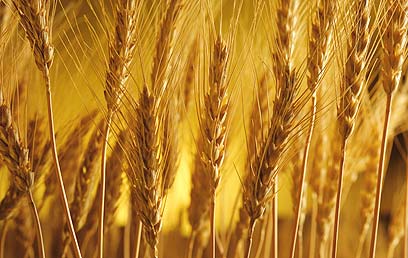
Shavuot
None
Shavuot is Judaism's third Pilgrim Festivals, the first being Sukkot and the second Passover; and is celebrated on the sixth day of the Hebrew month of Sivan (late May or early June).
Shavuot, meaning "weeks," marks the end of the Counting of the Omer and the day on which the Torah was given to the Jewish people at Mount Sinai.
According to tradition, the holiday is believed to be the time when the first fruits were harvested and brought to the Temple in Jerusalem as offerings, and as such it is mentioned several times:
- The Festival of Weeks – "Celebrate the Feast of Weeks with the first fruits of the wheat harvest, and the Feast of Ingathering at the turn of the year. (Exodus 34:22); "Then celebrate the Feast of Weeks to the Lord your God by giving a freewill offering in proportion to the blessings the Lord your God has given you," (Deuteronomy 16:10).
- The Festival of Reaping – "Celebrate the Feast of Harvest with the firstfruits of the crops you sow in your field. Celebrate the Feast of Ingathering at the end of the year, when you gather in your crops from the field," (Exodus 23:16).
- The Day of the First Fruits – "On the day of firstfruits, when you present to the Lord an offering of new grain during the Feast of Weeks, hold a sacred assembly and do no regular work," (Numbers 28:26)

'A land with wheat and barley, vines and fig trees' (Photo: CD Bank)
In Israel, Shavuot is celebrated for one day. In the Jewish Diaspora, however, it is usually celebrated for two days.
The holiday's primary custom, celebrated in honor of ancient Temple customs, is the offering of Bikkurim – first fruits. Traditionally, the offering is made out of the enumerated in the bible as unique to the Land of Israel: Wheat , barley, grapes, figs, pomegranates, olives, and dates: "A land with wheat and barley, vines and fig trees, pomegranates, olive oil and honey," (Deuteronomy 8:8).
Unlike all other Jewish holidays, the bible does not decree any special mitzvahs regarding Shavuot. Traditional customs call for refraining from work, holding special prayer services and holiday meals, consisting mostly of dairy products.
During prayer, it is customary for synagogue goers to read the Book of Ruth, associated with the holiday. The book is believed to correspond with the holiday, since it describes the wheat harvest season. Moreover, the lineage described at the end of the book lists King David as Ruth's great-grandson. According to tradition, David was born and died on Shavuot.










